PART 2
Other recruits that now joined the Constabulary in late 1914 were:
PC 180 Henry Frank HANN
PC 164 Robert BOOL
On the 19th September Sergeant Major Walter BROWN of the 3rd Dorset Regiment, stationed at the Upwey Camp was arrested and charged with stealing bacon, beef, cheese, ham, jam, condensed milk, 2 tins of salmon and 2 tins of herring which was the property of HM Secretary state for war. He was also assisted by three civilians from Wyke Regis, Walter LEGG, a cabman, Thomas DEAR a gardener and Frank GILL a fitter. Sgt OSMENT in charge of the Upwey area and Wyke Regis PC Joe SWAIN gave evidence and the Sgt Major received a 3 months prison sentence with hard labour for this offence.
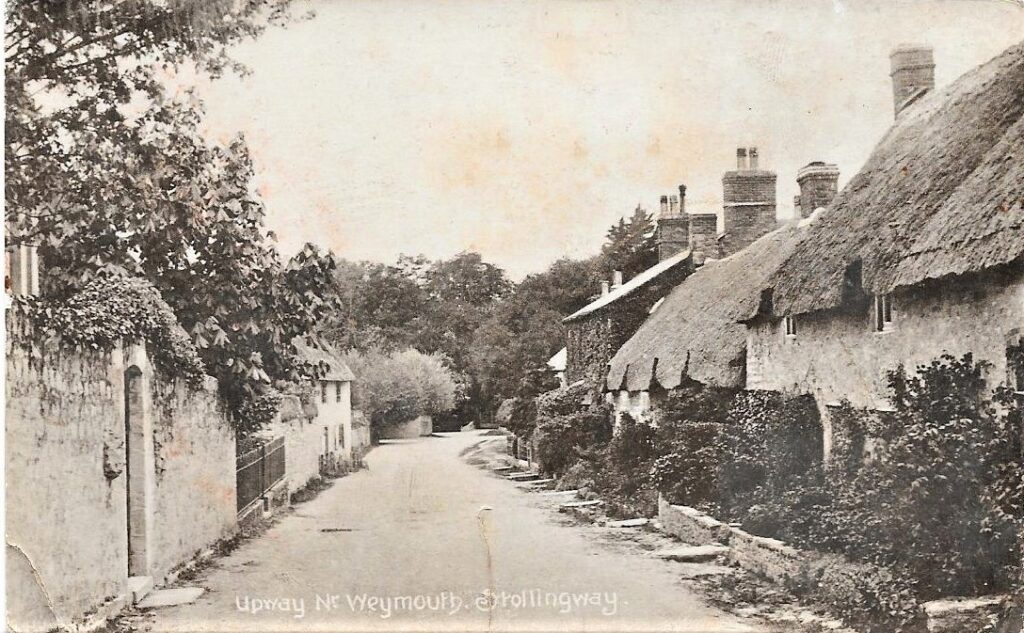
On 9th October, John Joseph DORE, a German national was summonsed for disobeying his restrictions on his aliens permit, because he did not return on time to his abode at Evershot by 2100 hours. He had been living at Dorchester on the 25th August but was expelled and allowed to live at Evershot. Sgt Fred Henry ARNOLD who had been the local Sgt from Maiden Newton previously had spoken to the accused and arrested him. At court he claimed he could not get back to the location by train but this was disproved by Detective Sgt Percy BECK and Supt Albert KING proved the case. He was fined 20 shillings and costs and the magistrates said they had been lenient due to it being the first case as the punishment could be 100 pounds or 6 months in jail.
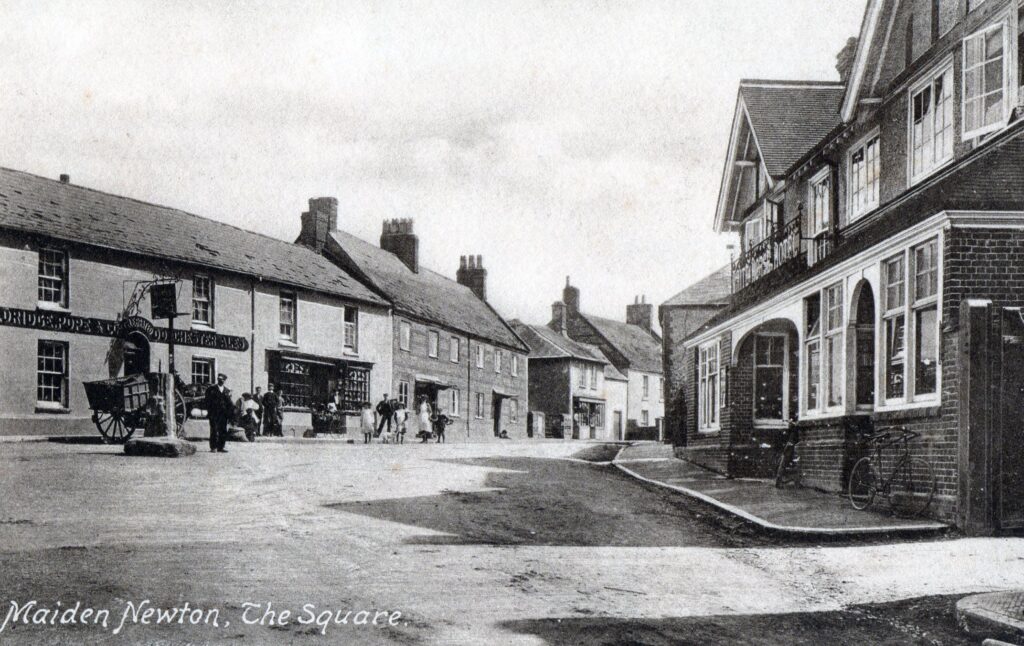
On the 15th October the Belgian coast line was reached by German Soldiers, especially the ports of Zeebrugge and Ostend and more local officers were required to be temporary Drill Sgts, so PC’s BLUES, BILLETT, HUNT and BARRETT were lent to the Army on the 20th. Not long after on the 29th October 1914, Pte 14227 William Edward GALE of the Kings Company, 1st battalion of Grenadier Guards died fighting at Mons. This was not made public until the following year, after he had been described as “wounded and missing”.
PC William GALE was born in October 1890 and brought up by his parents Frank and Edith in West Stafford just outside Dorchester, where he went to the village school with his two sisters Elizabeth and Ethel. They lived in a linked cottage four houses away from the Rectory and his father was a local Coachman. He spent all of his childhood in West Stafford until in February 1909 when he joined the Army, enlisting with the Grenadier Guards who were serving at Aldershot. In late 1912 or early 1913 William had a career change and returned home and joined the Dorset Constabulary and was given the police collar number 19. We know he was stationed at Branksome and by that time and during the War his parents were also in the east of the County and were now living in Church Road, Ferndown.
More supernumerary Constables were employed in the middle of October. Ex PC’s Alfred JAMES, James HANSFORD, Richard PERRY AND Henry KELLOWAY. Two retired officers during September had been taken ill, who were Sgt Henry BATTRICK and PC Charles LUCAS, so both returned to retired life. There were few movements for regular officers although Sgt Samuel BISHOP and Reg HAYWARD swopped stations BISHOP to Gillingham and HAYWARD to Dorchester. A new recruit PC 139 Alfred Frederick BURROUGH was moved to Poole from HQ. On the 16th October several more of the supernumerary officers were struck off strength. These were, Supt DENNETT, Sgts SPRACKLING, BEST, KIMBER and BAVERSTOCK. PC’s HOLE, TALBOT, BARRETT, FREAK, ELLIS, HINE, PERRY, JAMES and Fred HANSFORD.
On the 23rd October PC 115 Fred MEADEN was found under the influence of drink at 1600 hrs and his uniform was dirty and ripped at Broadwinsor. MEADEN another officer who served in the Boer War was fined 5 shillings and cautioned.
On the 4th November 1914, PC 118 Eden COX of Dorchester was called to attend a report of a body on the railway line, so made his way to the railway station and then after walking farther down the track came across the decapitated body of a young man. As a result of the search, enquiries were then made by Sgt Fred Henry ARNOLD of Maiden Newton and PC CARTER of Charminster and the body of the young man’s fiancée was found drowned. From the police inquiry it was revealed that James WAY had days to go before enlisted in the Army and the couple had decided they could not bear to be apart so they decided to commit suicide. Initially they had decided that they would drown themselves together, however he did not drown as there was very little depth in the water so he decided to lie down on the railway track instead. The inquest found out that they were not married but had booked the church for later in the month. A card was found on his body which said “Jim and Flo Way, Bourne Farm, Puddlehinton. We have resolved to die together. We cannot be parted”
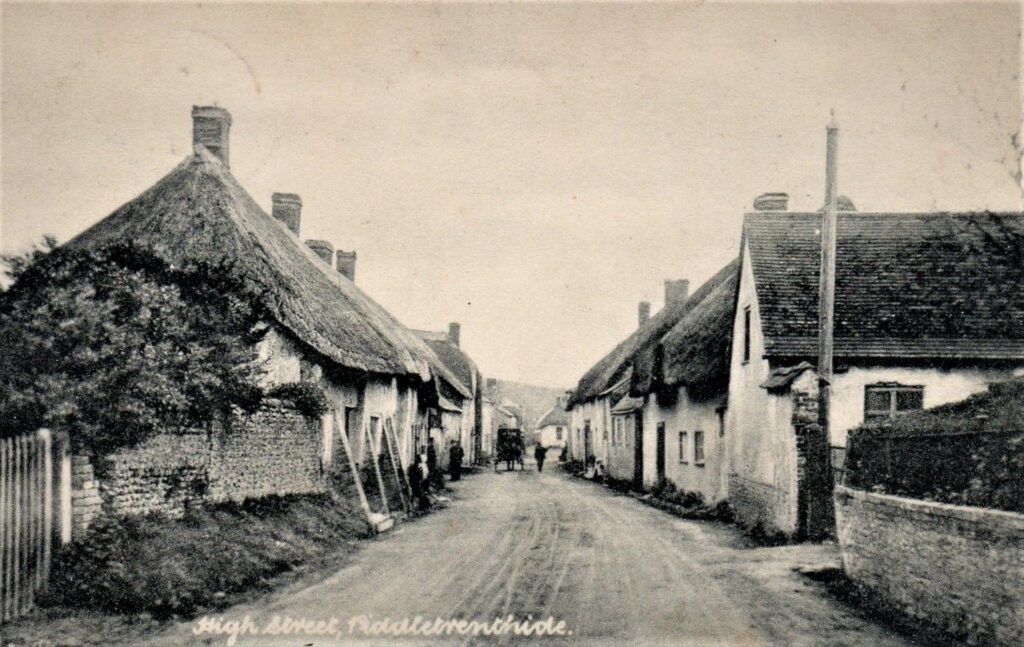
On the 17th November a few more station changes took place including new PC 181 Arthur STEELE who moved from HQ to Dorchester. On the 29th November there was a fatal shooting at Upwey where another male was also seriously wounded which involved again soldiers of the 3rd Dorset Regt. Supt Ernie SPRACKLING, Detective Sgt Percy BECK were involved in the enquiry, coroners court and trial but eventually it was concluded by a military courts martial where sentence was passed for Mutiny and Death. It must have been very difficult to investigate as Pte Wallace WILLIAMS was killed and over 50 shots were fired off in a disturbance at the camp at Upwey, where at the time they were guarding the water reservoir. After researching many articles if you want to know more I suggest you look at Sylvia Collins report as its very complex.
grandadbeck.co.uk/3rd-dorset-regiment-mutiny-fatal-shooting-upwey/
In the Constabulary general orders on 5th December, there was a comment that the CC had noticed some letters in the “police review” in which certain members of the Force felt they were being suffering grievances because of the war. The CC was most unhappy that he had not been made aware as he was under impression he had the full confidence of the Force. The main issue seemed to be the withholding of leave owing to the present crisis. He commented that he had no pleasure in stopping the leave and it would be reinstated as soon as possible, however they must make some sacrifice and understand that so many of their comrades and countrymen are fighting in the Army and Navy. He wished that the matter be directed to the Division Supts and then a personal interview would be granted.
.

On December 12th at Dorchester Borough Court, Henrich BORCHEIRS a 14 year old German Prisoner who was on remand was brought before the courts. On Monday 7th December he had been arrested for stealing various sums of money from other prisoners, he was found guilty and the prisoner was given one day’s imprisonment back at the POW camp as he was due to be removed soon.
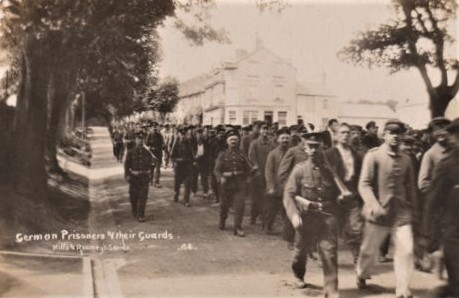
On the 16th December PC 164 Sydney BIRKINSHAW stationed at Shaftesbury was struck off strength as he wanted to join the Army and was the first of many volunteers in the Force. Meanwhile, at Dorchester the concentration camp was now almost empty of civilian German prisoners, as an agreement had been made between the British and German governments. About 350 prisoners who were too young or too old for military service left Dorchester on the evening of Friday 11th December and two days later at least another 300 were put on two more trains. The quarters of the old RHA barracks remained empty for a few days in preparation for a large body of naval and military prisoners whereby the huts would be able to cope with as many as 2000 men. The first batch of German war prisoners arrived on Tuesday 15th at Dorchester by special South Western train from Aldershot, where they were first held. The prisoners formed up in columns of four and were escorted through the streets under the Command of Capt BULKELEY of the West Yorkshire Regiment and a posse of police under Supt Albert KING and Sgt Reg HAYWARD. The route as normal was through the Market ground and up Cornwall Street and many spectators lined the roads. The below photograph would appear to be from that day and appears to show Supt KING and Sgt HAYWARD.
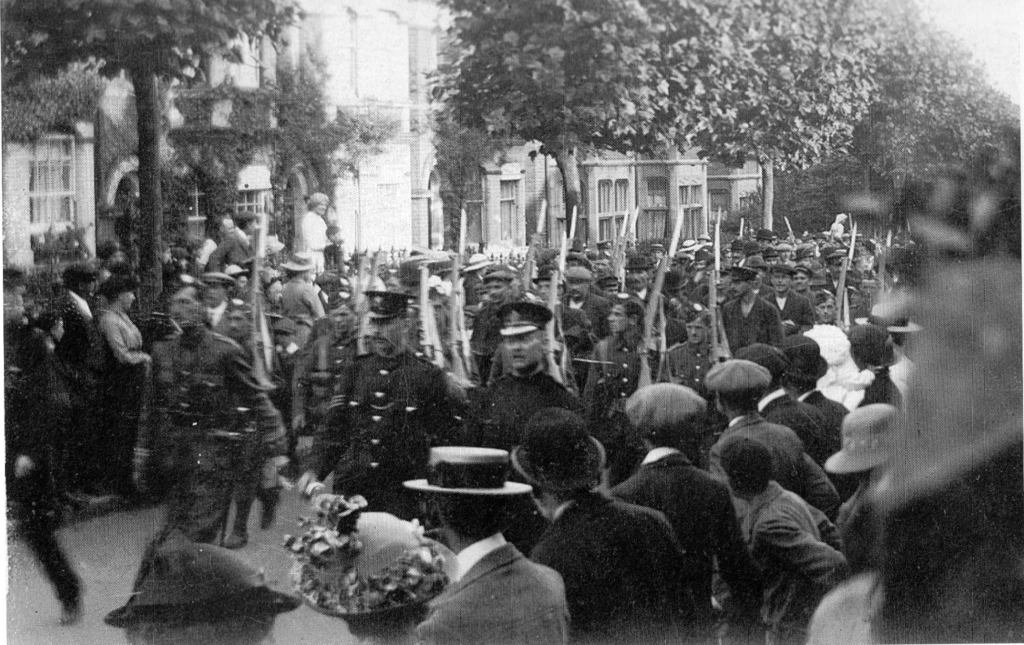
On the 19th December PC 104 William CROSS of Wimborne, retired after upwards of 26 years, this must have been on ill health as others officers were being kept on.
In the early hours of New Year’s Day 1915, HMS Formidable was hit by German torpedoes, several miles out to sea from the coast at West Dorset. The ship started to sink after a few hours of stability and so eventually the crew of 780 had to be evacuated and only about a quarter of her crew survived. One of her pinnacle boats had about fifty men on her, which was washed up after many hours at Lyme Regis. Sgt James STOCKLEY and PC RIDOUT were involved in its rescue with other local people.
At the inquest hearing on date, Sgt James STOCKLEY gave evidence and stated, “ I looked out at sea, but was unable to see anything. I heard more shouting later and I thought it was a street disturbance. I went down to the sea front and after a few seconds heard further shouting and saw a boat about four or five hundred yards out. I shouted, struck lights and sent for assistance. After a time the boat came ashore and one of the sailors threw in a rope. Three others came in by it and one in attempting to get hold of it fell into the sea. I jumped in and pulled him out, he was quite unconscious. I sent for the Doctor and then got into the boat and with the assistance of a Constable (PC 172 Harry Thomas RIDOUT) I got the man ashore. Only about three were able to get ashore themselves, several of them being unconscious. I found six dead in the boat, they were practically under water. Three others died after they were brought ashore, there we no personal effects on any of the bodies, some of them had no trousers on and others were scantily clad”. Dr Cooper of Lyme Regis concluded that the men had all died from exposure.
On a dull dreary afternoon on Wednesday 6th January, the funeral too place at Lyme Regis of the 6 sailors that died and were laid to rest in Lyme Regis cemetery. The men were Petty Officer W FELDON 36 years old, Stocker W.C ELEY, Stocker H. BRUNTHALL 19, W. FAWKES 21, Stocker H. SOUTER RNR 27 and first class boy B.A.P SMYTH 17. First in the procession from the Drill Hall to St Marys church was Sgt STOCKLEY and Constable 172 RIDOUT, and then a firing party from Devonport, dragging a gun carriage, which was followed by the deceased coffins dressed in union jacks. Then the Formidable survivors followed carrying wreaths. In total 551 lives were lost when H.M.S Formidable went down.
Procession photograph by St Michaels Church in Monmouth Street, Lyme Regis.
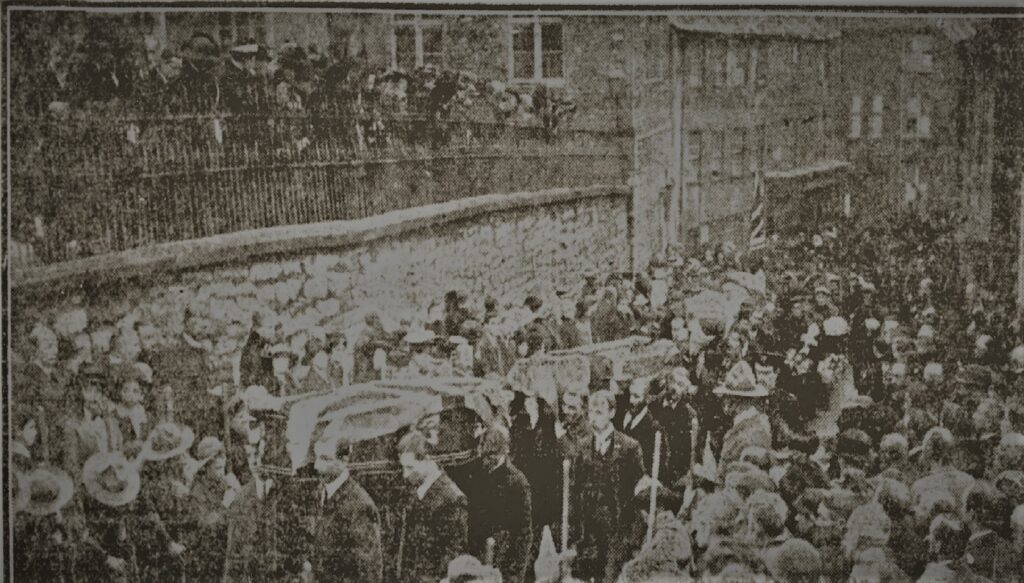
On 19th January new recruit PC 104 Walter Edward SMITH was posted to Poole and the day after PC 142 Charles HUNT returned from his instructor position with the Army.
In February 1915 in the papers it mentions that police pensioner reserves have come back to duty, 7 Sgt’s and 19 PC’s to replace 1 Sgt and 14 pcs recalled to the Army. The Constabulary now have 6 Sgt’s and 5 PC’s extra to strength, although 9 officers were reported as doing drill instructor duty. PC 45 Albert HARDY was the next to resign to join the Army and was struck off strength on the 4th February. On the 5th recruit PC’s 180 Henry HANN was posted to Gillingham to replace BIRKINSHAW and PC 164 Robert BOOL was transferred to Leigh.
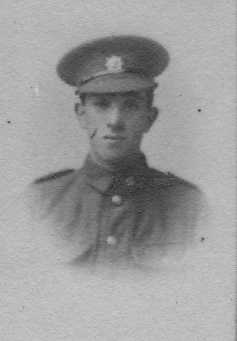
Above is a photograph of Sydney BIRKINSHAW in his Coldstream Guards uniform during WW1 from his youthful looks. Sydney joined up on 25th January and was part of the Machine Gun Battalion as he was an excellent shot. Sydney carried on with the military after WW1 and at some point later worked for HM Customs & Excise which was formed before WW1 in 1909.
Thanks to Chris Brennan who is Sydney’s grandson and Victoria Thorpe for letting me use this photograph.
Sgt James STOCKLEY is then honoured by the King as the President of the Board of Trade recommended he be awarded the silver medal for gallantry in saving the lives of three survivors at sea from the HMS Formidable. On Monday 8th March at Lyme Regis Town Council meeting, before business commenced, the Mayor Mr A.J. WOODROFFE, stated it was his pleasure to present the Royal Humane Society’s bronze medal to Police Sgt STOCKLEY, in recognition of the valuable aid which he rendered in saving the lives of some of the crew of the ill-fated battleship Formidable. He then pinned the medal on Sgt STOCKLEY’S breast and congratulated him on behalf of the towns people of Lyme Regis. After Sgt STOCKLEY had thanked the Mayor, the Mayor announced that a sum of 47 pounds had been subscribed towards the erection of a memorial to the six victims of the disaster who had been buried at Lyme Regis Cemetery. Sgt James STOCKLEY is shown below from 1915.
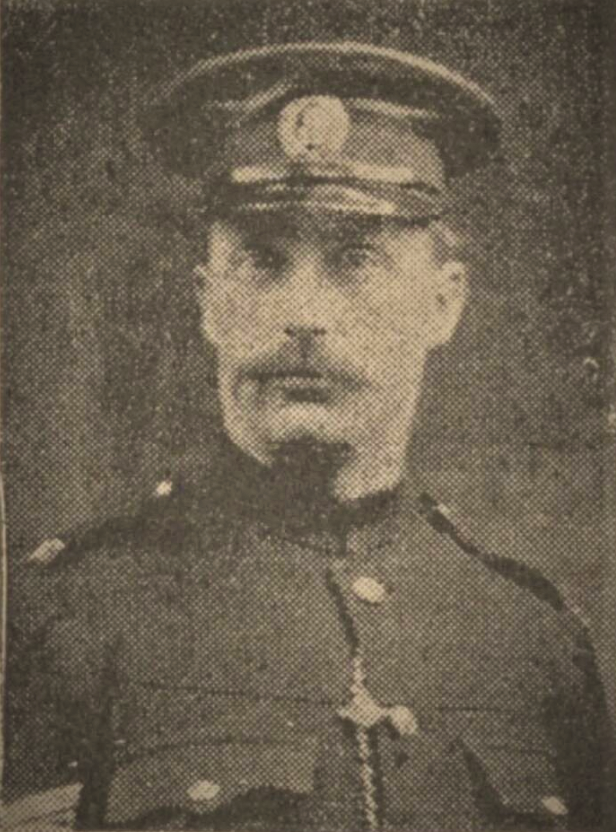
On the 28th February PC 30 OLD returned to the Constabulary as did Sgt WHITE and PC 100 HUNT,on 17th March from their duties of Army drill instructors.
In April PC 171 James MONTAGUE and PC 94 Thomas CARTER resigned to join the army. 5 instructors had now returned to the Force, 3 reserve pensioners were guarding Holton Heath Admiralty Works and 29 reserves were working for the Force. The three reserves at Holton Heath were replaced by regulars PC 156 Albert PIKE, 154 Fred SMYTHERS and 167 Sidney OSMAN. The CC said he quite happy to reimburse officers that had spent money on purchasing flour for the purpose of making paste to post up bills for the war effort.
More officers who left the Force were: PC 66 Albert Victor LIGHT on ill health after 6 years, PC 150 Albert Cyril Stone CARTER to join the army and PC 152 Arthur PERRIS who was dismissed for unbecoming conduct. New PC 45 Walter TOLLEY is transferred from HQ to Portland where he replaces his brother PC 137 William TOLLEY who moved to Poole.
On Tuesday 11th May, Sgt STOCKLEY attended Buckingham Palace where he and about 20 other men were presented by the King their Board of Trade medals for gallantry in saving lives at sea.
In the May meeting of the DSJC, they agreed to pay a war bonus of 2 shillings a month, backdated to the 1st April to the regular officers of the Force to help cope with the extra costs of living during the war effort. Sgt STOCKLEY was also present and was presented with a 20 pound cheque from the Cornegie Hero Fund Trust by the Chairman. He told STOCKLEY that he was a great credit to the Force and the CC concurred that he felt the whole Force felt proud that one of their members has been so highly honoured.
More Constables then resigned to joined the Army
PC 64 William Charles Henry CARTER on 7th May
PC 162 Arthur Charles YOUNG on 7th May
PC 171 James Harold MONTAGUE on 10th May
PC 39 Percy LOVELACE
PC 88 George MARGRIE on 12th May
PC 41 Edward George WELSH on 17th May
PC 175 Alfred John WINTLE
PC 17 William Alfred BARTLETT on 24th May
PC 127 Percy Barnes COPP
PC 179 Herbert Charles SCREEN
PC 68 William George BRICKELL on 31st May
PC 158 George Raymond CHARLTON
PC 112 Albert George CASE
PC 74 Robert John BROMFIELD
PC 57 Thomas William DURANT
PC 178 Isaac HARRIS on 7th June
These officers places were taken by supernumerary constables, Henry CUTLER at Sydling, Thomas ELLIS at Handley, William MORLEY at Loders, James EYERS, Charles HUNT, Francis BECK and Thomas EDWARDS at Dorchester, William POMEROY at Bridport. John WEBSTER at Wareham, John HINE, Walter ELSWORTH, William WYATT, Steven GOULD, William CARR and Thomas Alexander at Poole, Ernest ALFORD at Shaftesbury, Henry COOPER and Abel BRAKE at Sherborne, Albert SYMES at Blandford and Edward CATTLE at Hazelbury Bryan.
On the 28th May, the Western Gazette printed a letter from Lance Corporal Lewis, formerly a member of the local Police force, of the Somerset Light Infantry, writing to his wife from base hospital says:
“ I suppose you have read in the papers about the poisonous gas the Germans are now using against our troops. It is really something awful. Not only did it ill a lot of troops, but also a number of women and children, who were found lying dead in their houses”. Referring to the sinking of the Lusitania he adds: “Making war on helpless women and children is all the German are fit for. From what I have seen of their soldiers, they are more like a lot of beasts from the wilds of Africa than men. No doubt you have read about what they have been doing to the poor women and children over here. I know it is right from what I have seen myself. It is a rotten shame for men to strike in England at such times as these. Best thing to do is send them out here!””
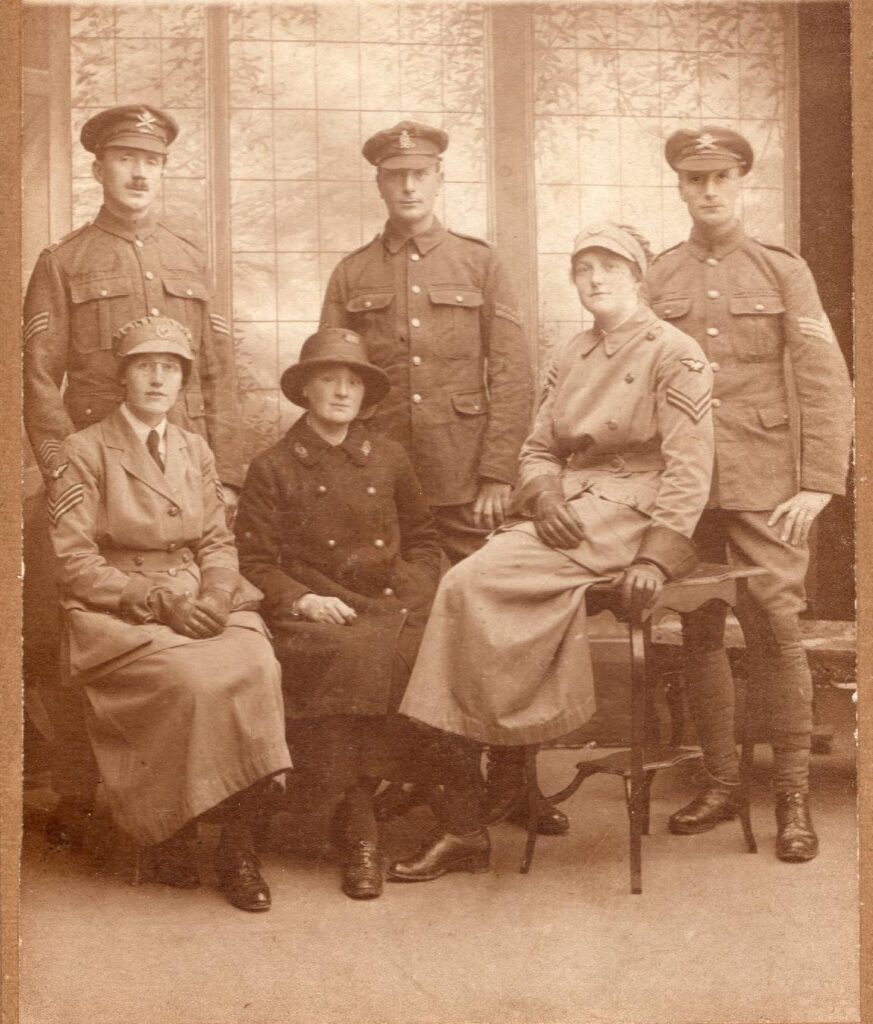
The photograph above is of the SCREEN family in 1915, PC 179 Hubert SCREEN is in his Royal Garrison Artillery Cpl uniform in middle at the rear. He had been in the Constabulary less than a year before joining the Army. Photo courtesy of Andrew SCREEN, his grandson.
On the 15th June 1915 Supt Ambrose RICKETTS who was in charge at Wimborne died after a long and painful illness. He was 2 years over his normal retirement age of 55 and had completed 37 years in the Force, he left a wife and a large family. Supt James SIMS was on the move again and told he would be posted from Blandford to Wimborne. This had the knock-on effect that on the 16th June Detective Sgt Percy BECK was promoted to Supt and with immediate effect took charge at Blandford. PC 93 Harry LAWRENCE was them moved from the Witchampton beat and promoted to Sgt to replace Supt BECK at HQ to become the new Force detective. Five Constables were also moved stations.
Five days later Drill Sgt William WHITE signed up for the 16th Kings Royal Rifle Corps in Buckinghamshire as a rifleman and the following day was promoted to Company Sgt Major. Later that month back in Dorchester, 400 more German prisoners arrived at the train station and were marched to the Poundbury camp.
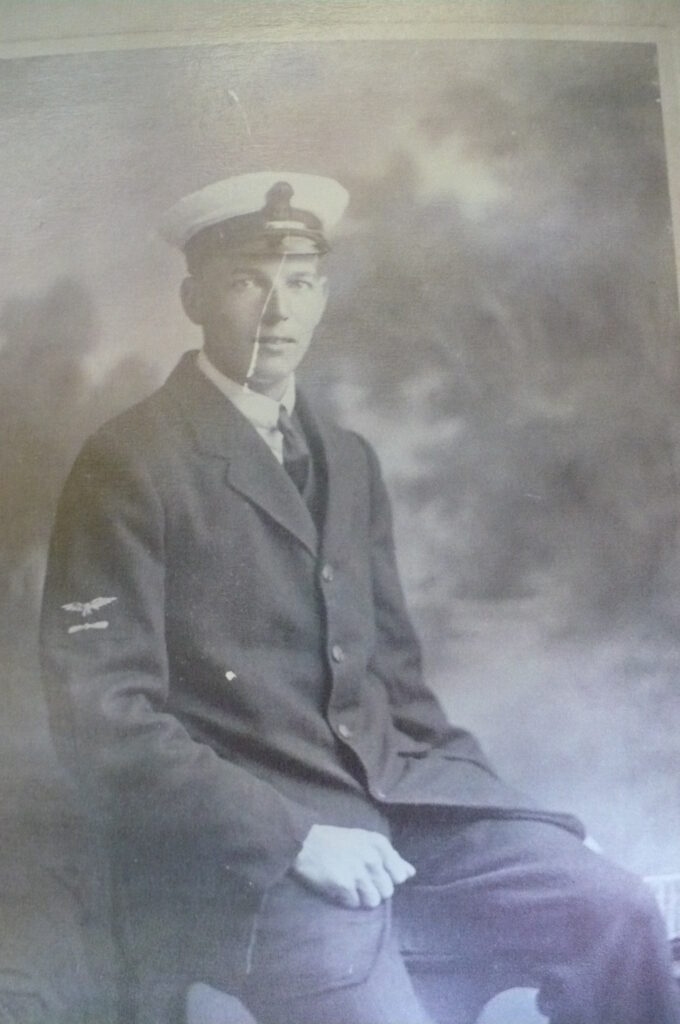
Above is a photo of PC 112 Albert CASE, who had been in the Constabulary since 1910 and joined the Navy in July 1915. Photo courtesy of Hazel BRICKNELL.
During July, PC 48 BLUES and PC 60 BILLETT returned from the Army RFA and resumed their normal duties. The CC reported that he was still unable to grant the usual rest day to Sgts and Constables however it was up to the discretion of the Supt’s to grant a day’s leave every fortnight, but only if he can be spared and that he is not away from his station at night unless under exceptional circumstances. More supernumerary constables were employed, Matthew CHICK at Blandford, Walter ARNOLD at Wareham, Henry BARNES at Dorchester and William GRAY, George HACKWELL and Arthur DRAPER at Swanage.
The following officers then resigned to join the Army.
PC 119 Walter Henry BAILEY on 22nd July
PC 118 Albert Charles CLARKE on 14th August
PC 151 James HOUSE on 28th August.
During August two more Constables were sent to Holton Heath, Naval Cordite Works for duty, namely PC’s 170 Alfred George DURANT and 129 Joseph COTTRELL.
On November 11TH, Sgt Alfred PRIDE, who was stationed at Broadstone retired as unfit for duty after 26 years and promoted to Sgt was PC 144 Ernie CLARKE.
on 24th December one of the police reserve men, Constable Thomas J EDWARDS at Dorchester was taken ill, whilst on duty. He was a 52-year-old pensioner from the Metropolitan Police and had joined the Dorset Force to enable younger constables to join the Army. Unfortunately, he died on the 27th December from ptomaine poisoning.
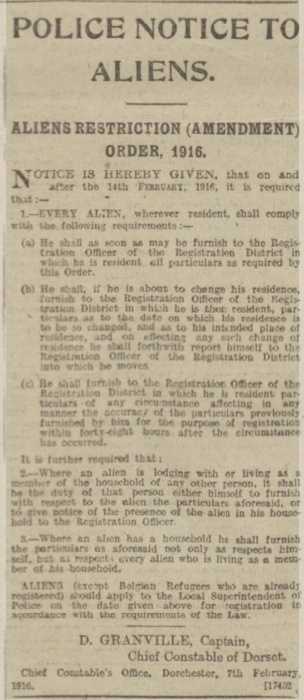
The officers who resigned officially at the end of November 1915 were:
PC 128 William John JOYNER
PC 145 Walter Edward TOLLEY
PC 180 Henry “Harry” HANN
PC 34 Samuel LAKE
PC 175 Arthur Augustine WHITE
PC 139 Frederick BURROUGH
PC 181 Arthur STEELE
PC 176 Edwin David BEST
In November the Government must have been worried about the security of the Whitehead Torpedo Works, as on the 29th five officers were temoparily moved from their stations to then be employed at the Works site. The officers were:
PC 94 Tommy CARTER from Bourne Valley
PC 130 Freddie CARTER from Gillingham
PC 165 Albert HILL from Sherborne
PC 62 John BROOMFIELD also from Sherborne
PC 125 Frank SYMES from Okeford Fitzpaine
In 1916 Company Sgt Major William WHITE was mobilised with his regiment and landed in France on the 2nd February, 6 days later was promoted to Regimental Sgt Major. .
This meant that thirty-nine officers were then serving in the war effort and 104 out of 106 officers who had attested as fit and of the right age were given arm bands. Over the next few months on the 16th April Cpl 75483 Arthur FOSTER RGA is wounded. On the 6th June, PC Daniel WAYMOUTH of the Weymouth Borough Police joins up and on the 1st July Sgt 14972 Thomas DURANT, with the 6th Dorsets in France, is wounded in the neck, chest and left arm and moved to a Red Cross Hospital in Dundee, Scotland
On the 4th September 1916 the second Dorset Constabulary Constable died. Guardsman 22780, Albert Thomas HARDY. He was killed in action in the battle of the Somme in France with the 3rd battalion of the Grenadier Guards. Albert joined the Dorset Constabulary only a few months before the Great War started, probably in July 1914 after being brought up as an only child in Piddlehinton by his parents Josiah and Esther. Unfortunately, his mother who was ten years older than his father died in 1912 and at the time his father was described as a general dealer. Albert was a bricklayers labourer before he was a policeman.
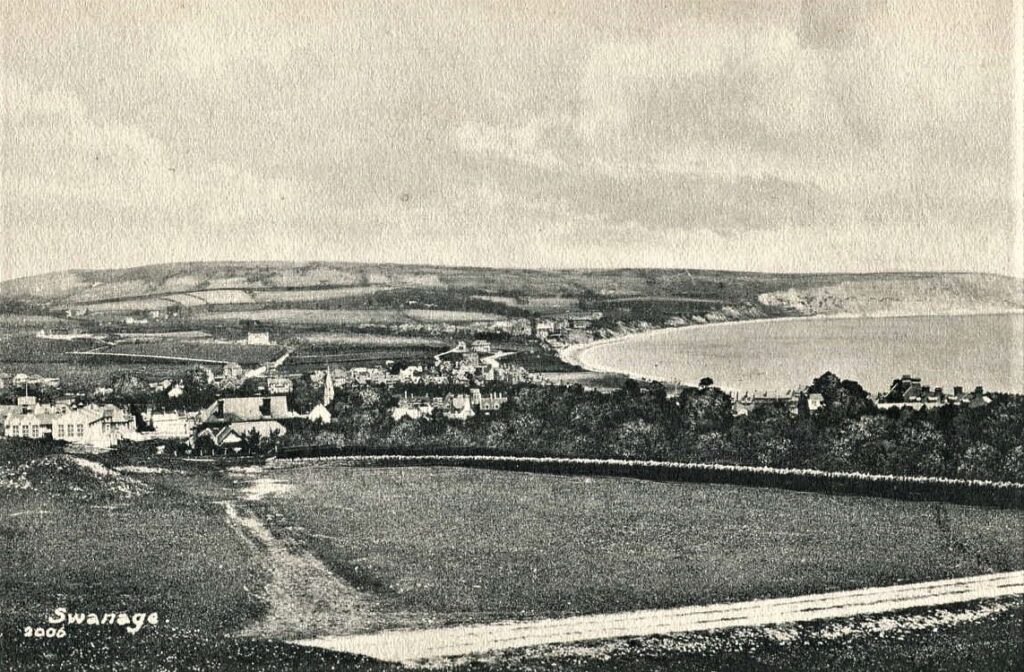
In October, ex PC 25 Alfred G F KNIGHT, who had joined the Constabulary in 1912, was invalided out of the Army and granted a pension for twelve months, as partly disabled. PC 151 James HOUSE resigned and applied to learn to drive motor vehicles for the purpose of joining the Army Transport Service and was quoted as, not intending to return to the police service. PC 9 Frederick GROVES of Poole also retired as unfit after 26 years. The strength of the Force was now 212, 6 men short.
On December 15th, PC 136 Robert BIDDLECOMBE, of the Sherborne division was taken ill suddenly whilst out walking on his patch at Thornford. Unfortunately, on the 18th December he died in Sherborne hospital. He was already entitled to his pension after serving for 25 years and 4 months. Robert was originally in the Poole Borough Police before amalgamation.
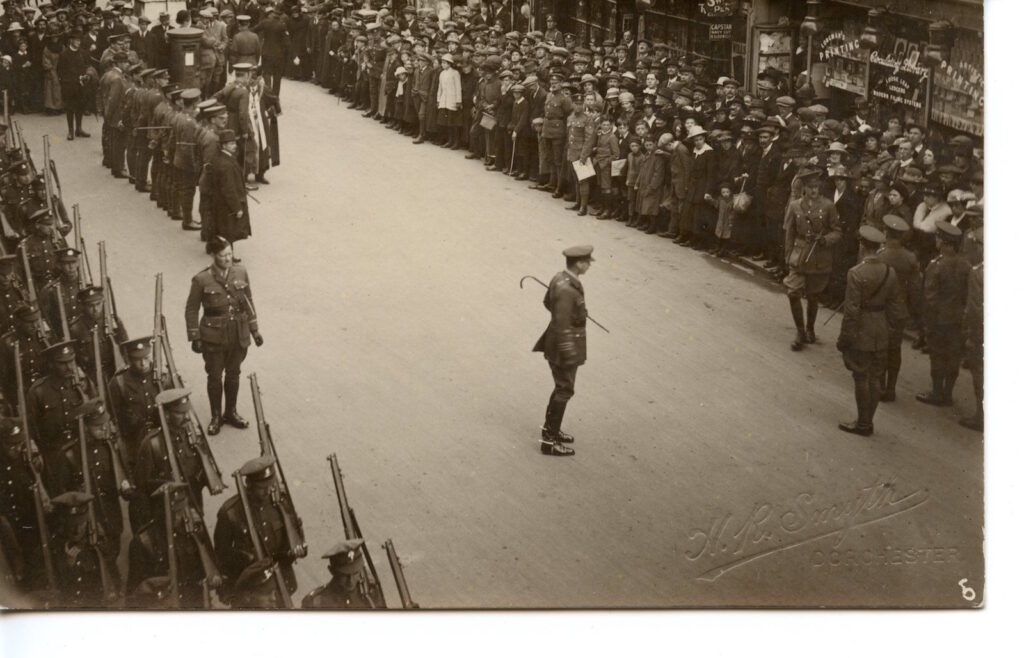
On 4th January 1917, eight more officers were released for War service.
PC 172 Harry Tom RIDOUT
PC 170 Alfred George DURANT
PC 143 Wilfred Raymond LOCKYER
PC 167 Sidney Charles OSMAN
PC 165 Albert HILL
PC 71 Frederick NORRIS
PC 169 William Alfred PAINTER
PC 33 George Charles DIMENT
Clerical Staff at HQ petitioned for more pay because of the excess requirements made on them by the War effort and for parity with other police forces and military staff. This was granted to the following officers at 6d a day.
Sgt 21 Alfred BARRETT (General and accounts department)
Sgt 6 Harry LAWRENCE (Alien and Criminal department)
PC 113 Cornelius BROWN (Corresponding Clerk, Typist and shorthand)
PC 22 Frank DAY (General Clerk, Store keeper, Typist and shorthand)
On the 16th February 1917 Bombardier 172 William Charles CARTER of the 129th Heavy Battalion, RGA was moved to the field hospital in France suffering from varicose veins. On the 22nd February he was declared unfit to fight and was out of action for another month until returning to his unit where he was given a new regimental number, 291714. On the 15th March 1917 RSM William WHITE was discharged from the Army as no longer fit for active duty after serving for over 8 months at the front in France before a stay in Royal Hospital at Chelsea. He returned to his job as Drill Sgt at HQ not long after. On the 25th April 1917 Sgt 14972 Thomas DURANT is discharged from the Army as unfit for war service and returns to the Sherborne Division for police duty.
Photograph of Digby Road, Sherborne with police station on the right.
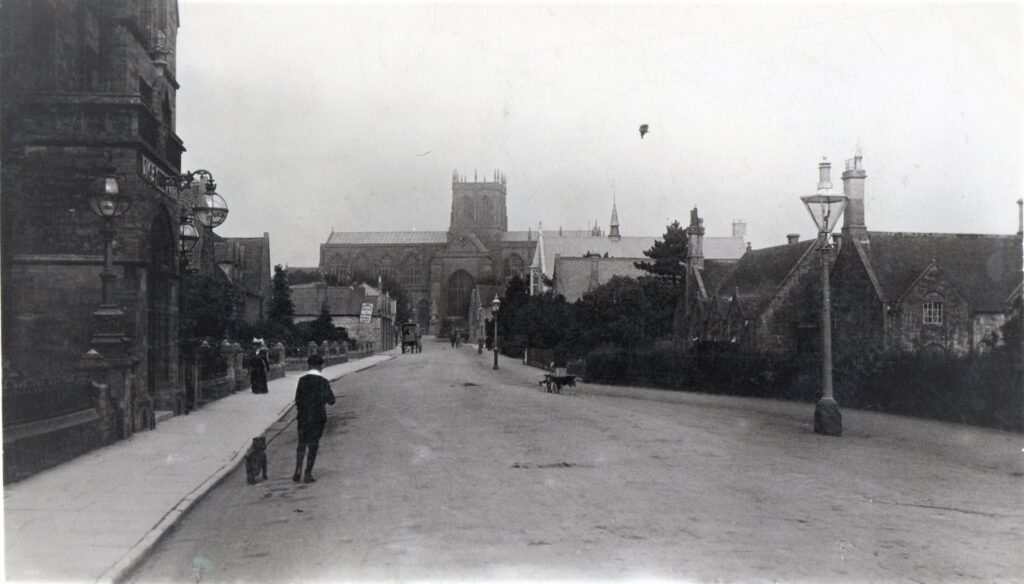
On the 26th April PC 166 WOOD was released as the Home Office requested that more officers were required to help the War effort so the CC released 6 more Constables who were also struck off strength on May 20th. They were: PC 6 Christopher George GENGE
PC 17 William Alfred BARTLETT
PC 62 John Robert BROOMFIELD
PC 94 Thomas CARTER
PC 129 Joseph COTTRELL
PC 153 Samuel COOMBS
In the north of the county on the 28th and 29th June, flooding took place in the Bourton and Gillingham areas in the river Stour valley. Thunder storms and heavy rain of up to 6 inches caused initial saturation, however even more rain of up to 10 inches was recorded nearby in Somerset. That excess water over the next 24 hours then came down the valleys into North Dorset causing chaos and at one point removing nearly 300 tons of coal from the wrecked Bourton Foundry.
THE FINAL PART WILL FOLLOW SOON